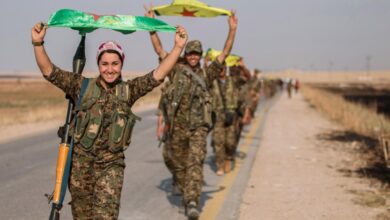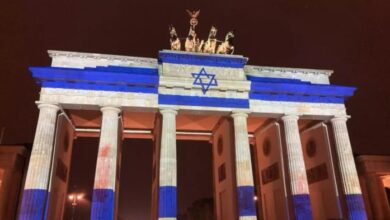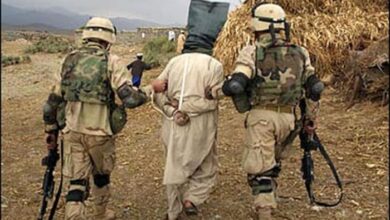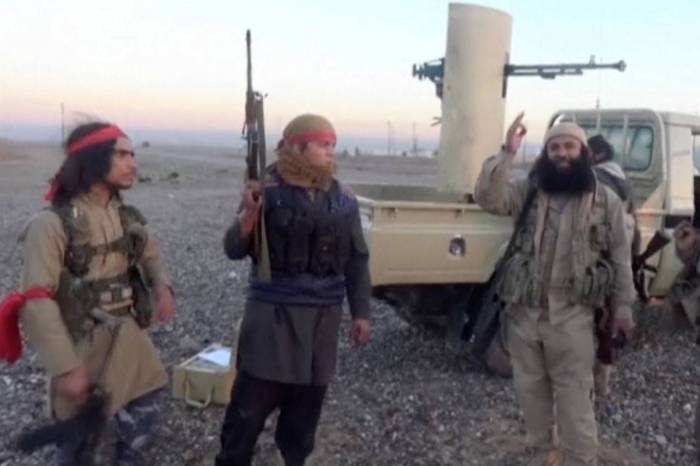
Is It a War on Islam? Examining the Discourse
Is it a war on Islam? This question, fraught with complexity and controversy, has resonated throughout history and continues to shape global discourse. Examining the term “war on Islam” requires delving into its historical roots, analyzing its political and ideological motivations, and understanding its social and cultural impacts.
It compels us to confront the challenges of prejudice, discrimination, and Islamophobia while seeking constructive dialogue and peaceful coexistence.
From the clash of civilizations narrative to the rise of political Islam, the discourse surrounding Islam in the West has evolved dramatically. This exploration aims to unpack the multifaceted nature of the “war on Islam” narrative, analyzing its impact on Muslim communities, media representations, and international relations.
By shedding light on the complexities of this discourse, we can foster greater understanding and bridge the divides that perpetuate misunderstanding and conflict.
Historical Context: Is It A War On Islam
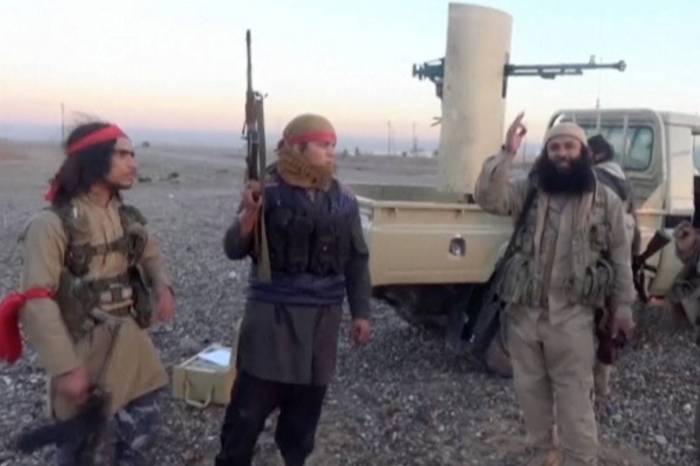
The relationship between Islam and the West has been marked by a complex interplay of interactions, from periods of peaceful coexistence and intellectual exchange to periods of conflict and misunderstanding. This historical context is crucial for understanding the current discourse surrounding Islam in the West.
Major Historical Events Shaping Perceptions
Major historical events have significantly shaped perceptions of Islam in the West. These events have often been framed within a narrative of conflict, contributing to a sense of “the other” and fueling anxieties about Islam.
- The Crusades (1095-1291): These religious wars, launched by European Christians to reclaim the Holy Land from Muslim control, contributed to a negative portrayal of Islam as a threat to Christendom. The Crusades fostered a sense of religious antagonism that would endure for centuries.
- The Ottoman Empire (1299-1922): The expansion of the Ottoman Empire, particularly its capture of Constantinople in 1453, further fueled anxieties in Europe about Muslim power. This era saw the rise of Orientalism, a discourse that often romanticized and exoticized the East, but also portrayed it as backward and threatening.
- The Rise of Colonialism (16th-20th centuries): European colonialism, particularly in the Middle East and North Africa, further complicated relations between Islam and the West. Colonial powers often exploited existing divisions within Muslim societies and imposed their own political and cultural systems, leading to resentment and resistance.
Prominent Figures in the Discourse on Islam
Throughout history, prominent figures have played significant roles in shaping the discourse on Islam in the West. These individuals have contributed to both positive and negative perceptions of Islam, often reflecting the broader political and social contexts of their times.
- Ibn Khaldun (1332-1406): A renowned Muslim scholar and historian, Ibn Khaldun is considered one of the founders of sociology and history. His work, “The Muqaddimah,” explored themes of social and political organization, offering insights into the dynamics of Muslim societies.
His contributions have been recognized by Western scholars as foundational to the study of history and social sciences.
- Edward Said (1935-2003): A Palestinian-American literary theorist and intellectual, Said’s seminal work “Orientalism” challenged the prevailing Western perspective on the Middle East. He argued that Orientalism, as a discourse, had served to perpetuate stereotypes and misunderstandings about Islam and the Arab world, ultimately contributing to the justification of colonial domination.
- Tariq Ramadan (born 1962): A Swiss-Egyptian Islamic scholar and activist, Ramadan has become a prominent voice in the discourse on Islam in the West. He advocates for a progressive and inclusive interpretation of Islam, emphasizing its compatibility with modern values and advocating for interfaith dialogue and understanding.
Political and Ideological Perspectives
The term “war on Islam” has become a potent and controversial phrase, often used to describe a perceived conflict between the West and the Muslim world. Understanding the political and ideological motivations behind this term is crucial to navigating the complex realities of global relations and public discourse.
The phrase itself is inherently charged, evoking images of a direct and hostile confrontation between two distinct entities. However, the reality is far more nuanced. Different groups and individuals interpret the phrase “war on Islam” in vastly different ways, reflecting their unique political and ideological perspectives.
Interpretations of the Phrase “War on Islam”
The phrase “war on Islam” can be interpreted in various ways, depending on the perspective of the individual or group using it. Here are some key interpretations:
- Western Imperialism and Neo-Colonialism:This perspective views the “war on Islam” as a continuation of Western imperialism and neo-colonialism, aimed at subjugating Muslim-majority countries for economic and political gain. They point to Western military interventions in the Middle East, particularly in Iraq and Afghanistan, as evidence of this agenda.
Proponents of this view often cite the historical context of colonialism and the exploitation of resources in Muslim-majority countries as justification for their interpretation.
- Clash of Civilizations:This perspective, popularized by Samuel Huntington, sees the “war on Islam” as an inevitable clash between Western and Islamic civilizations, driven by fundamental differences in values and beliefs. This view often emphasizes the perceived threat of Islamic extremism and terrorism, arguing that the West must defend its values against this perceived threat.
The idea of a “war on Islam” often feels like a conspiracy theory, but looking at the way some countries approach aid can be unsettling. The practice of food aid as dumping , where surplus products are shipped to developing nations, can feel like a form of economic colonialism.
If these countries are truly concerned about helping, why not focus on building sustainable local economies instead of perpetuating dependency? The question of a “war on Islam” may seem far-fetched, but these actions leave a lingering doubt about the true motivations behind “aid” programs.
Proponents of this perspective often point to the rise of extremist groups like Al-Qaeda and ISIS as evidence of this clash.
- Defense of Western Values:From this perspective, the “war on Islam” is a necessary defense of Western values, particularly freedom of speech, democracy, and human rights. This view often criticizes what it perceives as the suppression of these values in some Muslim-majority countries, arguing that the West has a responsibility to promote them.
Proponents of this perspective often cite examples of human rights abuses and restrictions on religious freedom in certain Muslim-majority countries as justification for their interpretation.
- Religious Conflict:This perspective sees the “war on Islam” as a conflict between Islam and other religions, particularly Christianity. This view often focuses on perceived religious tensions and conflicts between Muslims and non-Muslims, arguing that the West is waging a war against Islam itself.
Proponents of this perspective often cite examples of religious intolerance and violence, both in Muslim-majority countries and in Western countries, as evidence of this conflict.
Impact of Political Rhetoric on Public Perceptions of Islam
Political rhetoric and discourse play a significant role in shaping public perceptions of Islam. The use of terms like “war on Islam” can have a profound impact on how individuals understand and perceive the Muslim world.
- Fear and Prejudice:When political leaders and media outlets use language that portrays Islam as a threat, it can contribute to fear and prejudice against Muslims. This can lead to discrimination, hostility, and violence against Muslim communities. For example, the use of the term “Islamic terrorism” can reinforce the perception of Muslims as inherently violent, even though the vast majority of Muslims are peaceful and law-abiding citizens.
- Polarization and Division:The use of inflammatory language can also contribute to polarization and division within societies. When political leaders and media outlets demonize Islam, it can create a sense of “us vs. them,” making it harder to build bridges of understanding and cooperation.
The question of whether the “war on terror” is actually a “war on Islam” is a complex one. Noam Chomsky, in his insightful analysis of the world after 9/11, chomsky the world after sept 11 , argues that the US government’s response to the attacks was more about consolidating power and expanding its influence than about genuine security.
This raises the question: is the “war on terror” really a war on Islam, or is it a war on dissent and opposition, regardless of religion?
This can have a detrimental impact on social cohesion and interfaith relations.
- Suppression of Dissent:In some cases, the use of the term “war on Islam” can be used to suppress dissent and criticism of government policies. By framing criticism as a threat to national security, governments can silence opposition and restrict freedom of speech.
This can have a chilling effect on public discourse and limit the ability of citizens to hold their leaders accountable.
Religious and Theological Considerations
The “war on Islam” discourse is deeply intertwined with religious and theological arguments. Examining the interpretations of Islamic scripture and teachings related to conflict and violence, as well as the role of religious leaders and institutions in shaping perspectives on this issue, provides crucial insights into the complexities of this debate.
Interpretations of Islamic Scripture and Teachings
The Quran, the central religious text of Islam, contains verses that address conflict and violence. These verses are often interpreted in different ways, leading to varying perspectives on the use of force and the legitimacy of armed struggle. For example, the verse in the Quran that reads, “Fight those who fight you,” (2:190) has been interpreted by some as a justification for defensive warfare, while others see it as a call for offensive action against non-Muslims.
The question of whether there’s a “war on Islam” is complex and often fueled by misinformation. It’s crucial to separate legitimate concerns about Islamophobia from inflammatory rhetoric. This is especially important in the context of the war on journalism , where truth and objectivity are under attack.
When journalists are silenced or intimidated, the public is denied access to accurate information, making it even harder to address issues like Islamophobia and foster understanding.
- Defensive Warfare:Many scholars argue that the Quran primarily emphasizes self-defense and prohibits aggression. They point to verses like “And if they incline to peace, then incline to it, and trust in Allah” (8:61) as evidence that Islam promotes peaceful resolutions.
- Jihad:The concept of jihad, often translated as “struggle,” is another key element of Islamic theology that has been interpreted in various ways. While some scholars define jihad as an internal struggle against one’s own vices, others see it as an external struggle against injustice and oppression.
The interpretation of Islamic scripture and teachings on conflict and violence is complex and often influenced by historical, political, and social contexts.
Counter-Narratives and Alternative Perspectives
The “war on Islam” narrative, while prevalent in some circles, overlooks a complex reality and fails to capture the nuances of Islam’s relationship with the West. Counter-narratives and alternative perspectives challenge this simplistic framing, emphasizing the multifaceted nature of Islam and its diverse interpretations.
Interfaith Dialogue and Understanding
Interfaith dialogue plays a crucial role in fostering peace and coexistence by promoting understanding and respect between different religious communities. By engaging in open and respectful conversations, individuals from different faiths can bridge cultural divides, dispel misconceptions, and build bridges of empathy.
- The World Council of Churches (WCC), established in 1948, is a prominent example of interfaith dialogue initiatives. The WCC brings together Christian churches from around the world, fostering dialogue and collaboration on issues of common concern, including peace, justice, and human rights.
- The Catholic Churchhas also been actively engaged in interfaith dialogue, particularly with Islam. Pope John Paul II’s visit to a mosque in Damascus in 2001 marked a significant step towards promoting understanding between the two faiths.
Alternative Perspectives on Islam
While the “war on Islam” narrative often portrays Islam as a monolithic and inherently violent religion, alternative perspectives challenge this generalization. These perspectives highlight the diversity of Islamic thought, the peaceful and tolerant interpretations of the Quran, and the contributions of Muslims to Western civilization.
- The Sufi tradition, a mystical branch of Islam, emphasizes spiritual enlightenment and the pursuit of inner peace. Sufis have historically played a significant role in promoting tolerance and interfaith understanding.
- The Islamic Golden Age, a period of significant intellectual and cultural flourishing in the 8th to 13th centuries, saw the emergence of numerous Muslim scholars who made groundbreaking contributions in fields like science, mathematics, and philosophy. These achievements demonstrate the intellectual capacity and cultural richness of Islam.
Impact on Foreign Policy and International Relations
The “war on Islam” discourse has had a profound and complex impact on foreign policy decisions and international relations. It has shaped how nations perceive each other, the strategies they adopt to address security threats, and the global political landscape.
Impact on Foreign Policy Decisions, Is it a war on islam
The “war on Islam” discourse has influenced foreign policy decisions in various ways.
- Increased Military Interventions:The discourse has justified military interventions in Muslim-majority countries, often based on the premise of combating terrorism. Examples include the US-led invasion of Afghanistan in 2001 and the ongoing intervention in Iraq. These interventions have had a significant impact on the political and social fabric of these countries, contributing to instability, displacement, and the rise of extremist groups.
- Counterterrorism Policies:The “war on Islam” discourse has shaped counterterrorism policies globally, often leading to the adoption of broad and sweeping measures that target entire communities. This has included surveillance, profiling, and the targeting of individuals based on their religious beliefs or ethnicity.
Such policies have often been criticized for their discriminatory nature and for creating a climate of fear and suspicion among Muslim communities.
- Foreign Aid and Development Strategies:The discourse has also influenced foreign aid and development strategies. In some cases, aid programs have been used as a tool to counter Islamic influence or promote “moderate” Islam. This approach has been criticized for its paternalistic nature and for failing to address the underlying factors that contribute to poverty and extremism.
Impact on International Relations
The “war on Islam” discourse has significantly impacted international relations, leading to:
- Increased Polarization and Conflict:The discourse has contributed to the polarization of the international community, creating a divide between the West and the Muslim world. This has fueled anti-Western sentiment in some Muslim communities, while also contributing to Islamophobia in the West. This polarization has made it more difficult to address common challenges, such as terrorism and climate change.
- Erosion of Trust and Cooperation:The “war on Islam” discourse has eroded trust and cooperation between nations. The perception that the West is engaged in a war against Islam has made it difficult to build alliances and work together on issues of mutual concern. This has hampered efforts to address global challenges, such as the spread of weapons of mass destruction and the fight against transnational crime.
- Rise of Extremist Groups:The “war on Islam” discourse has created a fertile ground for the rise of extremist groups. By portraying Islam as a threat, the discourse has provided justification for violence and extremism, both within Muslim communities and against the West. This has made it more difficult to counter the spread of radical ideology and promote peace and stability.

